Mission
The mission of the SFT is to accelerate the transition to sustainable food systems, inspired by our philosophy of the interconnectedness of the health of soil, plants, animals and people. Our vision is for future food and farming systems which nourish the health of people and planet and are equitable and accessible to all.
Read more…
Around the world, we now face multiple crises – climate change, loss of nature and biodiversity, food shortages and famine, partly as a result of conflict, and a worsening public health crisis driven by industrialised food with poor nutritional value.
How do we respond to these crises? We have a choice. We can either double down on industrial farming to produce food that is bad for our health, the environment and food security – or we can seize the opportunity to accelerate more sustainable food and farming and, ultimately, ensure everyone has access to healthy, sustainable food. Today, food and farming are part of the problem, but we believe it could be a big part of the solution if we make the right choices in the coming months and years.
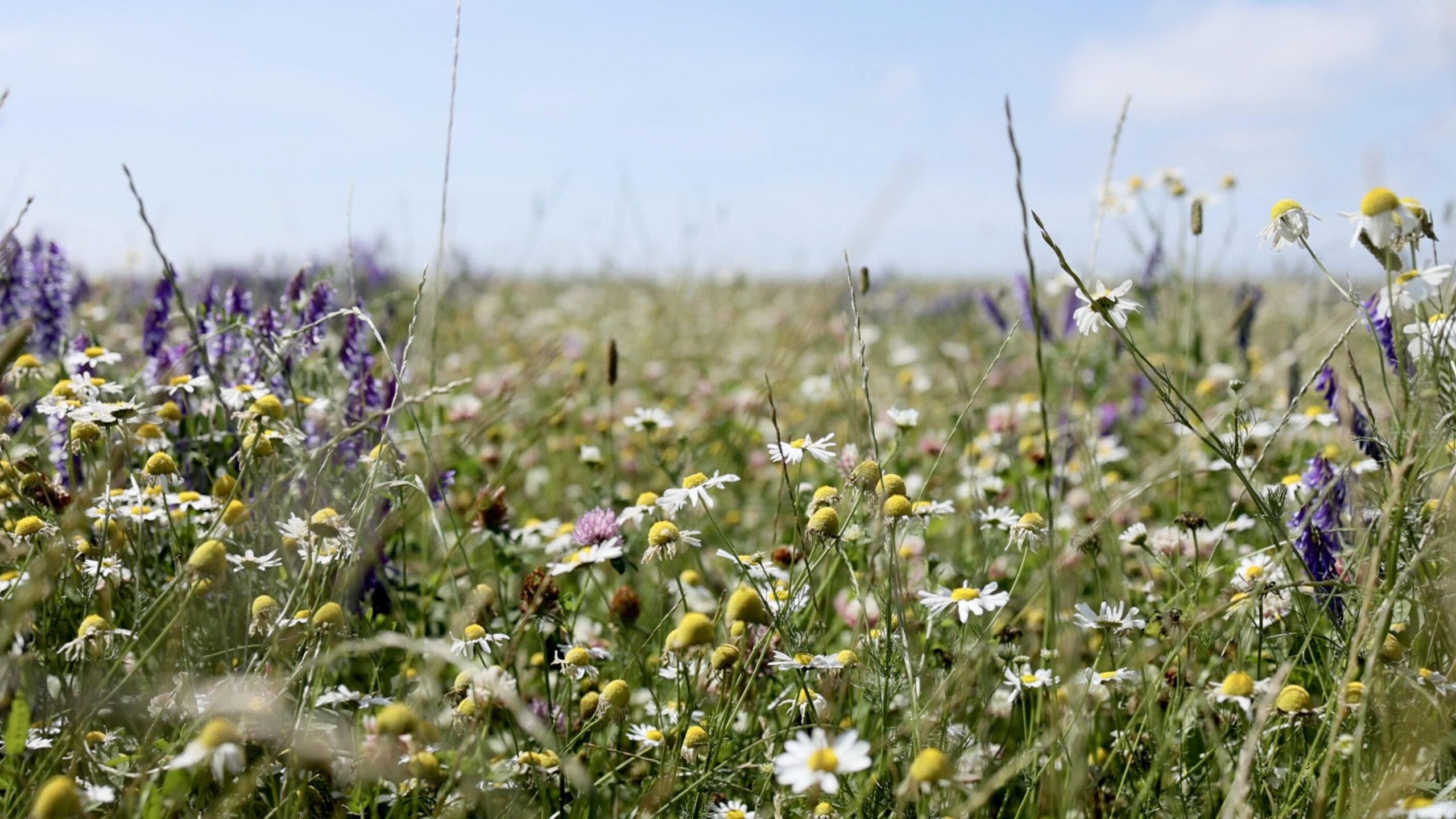
Our Work
Everyone now agrees we need a fundamental transformation of our food and farming systems. Our role is to accelerate this by overcoming the barriers to change.
We are working to develop:
- New models of food and farming systems which deliver on climate, nature and health
- A shared vision amongst individuals in leadership positions on the food and farming transition
- A globally harmonised framework for measuring on-farm and land-use sustainability
- An economic environment which enables farmers to transition to truly sustainable systems
- An informed body of public opinion to drive change
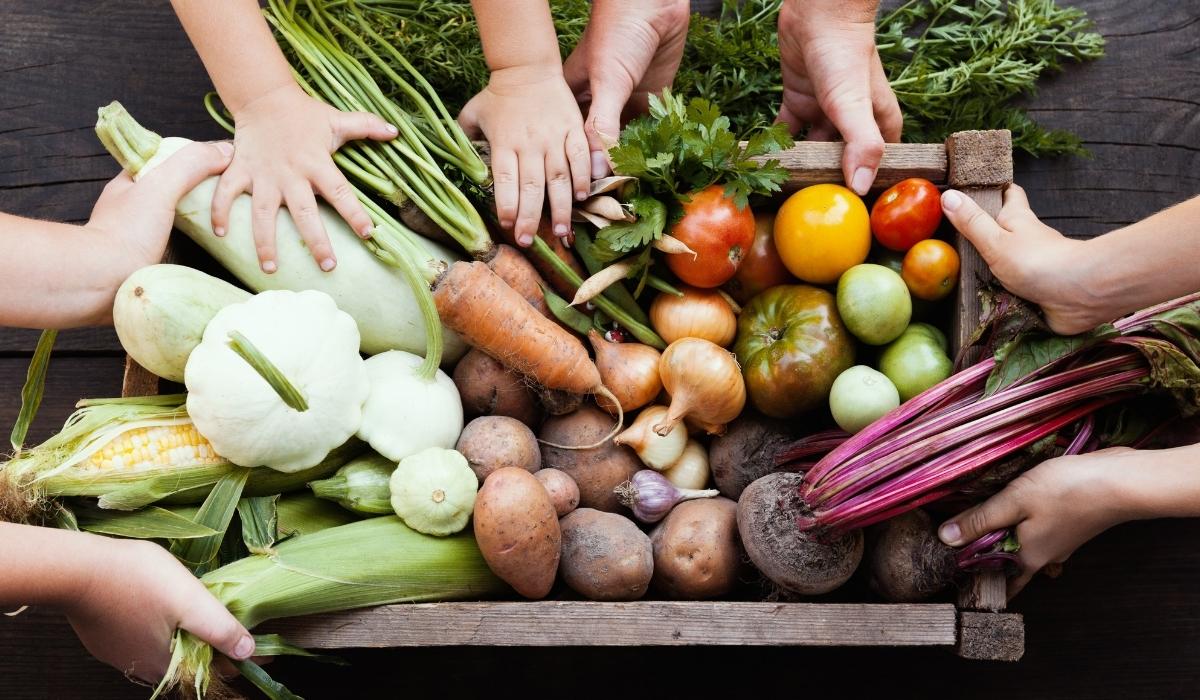
History
The Sustainable Food Trust is a registered charity that was founded by Patrick Holden in 2011 in response to the worsening human and environmental crises that are associated with the vast majority of today’s food and farming systems.
Since then we have worked to address some of the major barriers preventing a shift towards more sustainable food production and healthier diets. Including, the lack of:
- Consensus about the type of farming systems to which we need to shift
- An enabling financial environment for farmers wishing to transition
- A common, holistic framework for measuring farm-level sustainability
- Public understanding of the impact of regenerative food and farming systems
History highlights
Since being established, the SFT has worked collaboratively to inspire change. Some of the highlights from the past ten years include:
- Helped to establish True Cost Accounting as a concept and discipline, particularly through holding the True Cost of American Food Conference in San Francisco in 2016.
- Published our report, The Hidden Cost of UK Food, in 2017. It is still regularly referenced as the go-to source for true cost accounting in the UK.
- Founded The Harmony Project, inspired by the Prince of Wales’ book Harmony: A New Way of Looking at Our World. It takes inspiration from nature in changing the way we look at the world, most notably in our education system. After holding the Harmony Conference in 2017, the project has grown and is now becoming its own registered charity.
- Published A Good Life and A Good Death: Relocalising Farm Animal Slaughter in 2018, a report about the decline of small abattoirs in the UK and how this impacts sustainable, high welfare farming. The report sparked our Campaign for Local Abattoirs which has led to the creation of the Abattoir Sector Group which works with government to address problems facing the industry.
- Campaigned for the reduction of antibiotic use in farm animals, publishing our report, Maximum Growth: Whatever the Cost in 2020.
- Founded the Global Farm Metric Coalition, beginning in 2017 through working with farmers. The coalition now has over 150 members. You can find out more about the GFM here.
- In 2022, we published Feeding Britain from the Ground Up, a report which explores the potential impacts on land use, food production and individual diets of a UK-wide transition to sustainable farming based on biological principles.
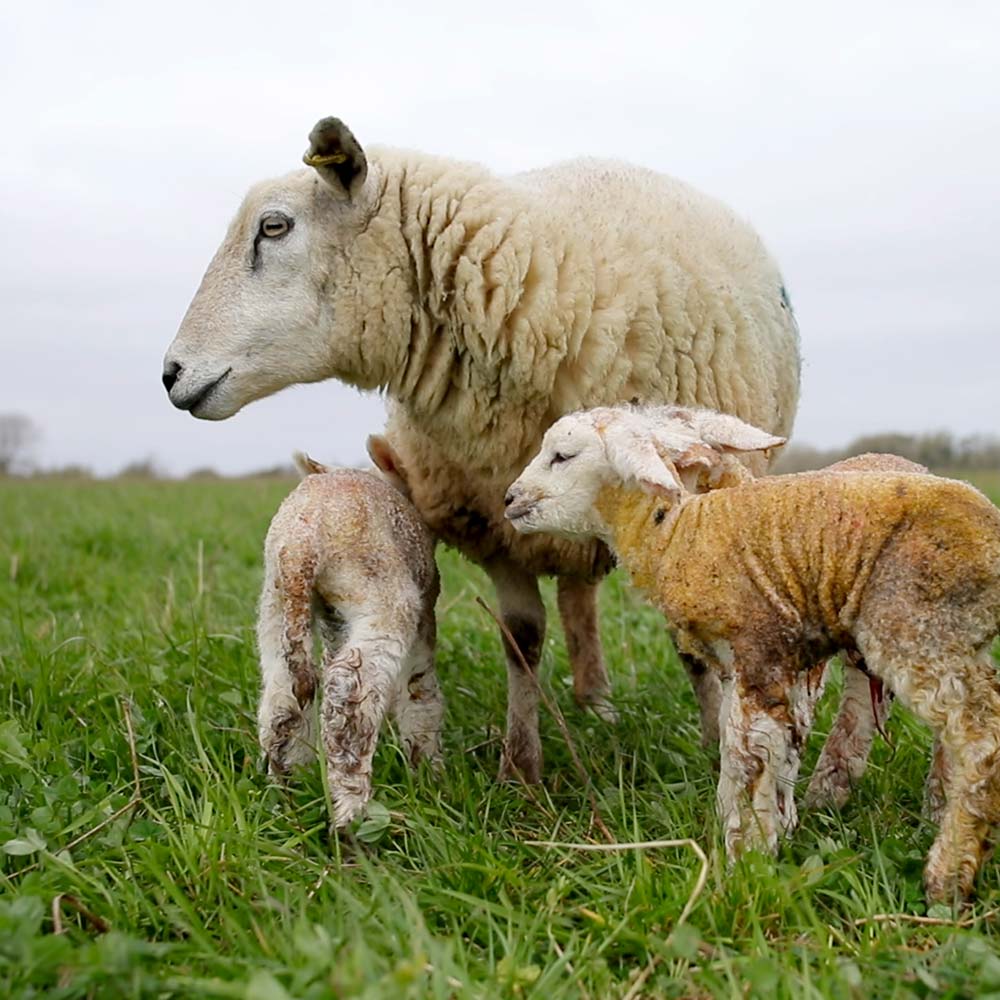
Meet the SFT Board
Our Board of Directors is made up of people passionate about transforming our food and farming systems.

His Majesty The King
Patron
In 2019, then HRH The Prince of Wales accepted an invitation to become the Patron of the Sustainable Food Trust.
The announcement was made at the launch of the organisation’s Progress Report on Monday 9th December 2019.
Patrick Holden, Founder and CEO of the Sustainable Food Trust:
“The decision by The Prince of Wales to accept this invitation comes at a vital moment in history, when the pressures that unsustainable land management, farming and food production systems are putting on the planet’s ecosystems, are threatening to precipitate irreversible climate change, biodiversity collapse, the further destruction of natural capital, food insecurity and massive and unaffordable damage to public health.
As an organisation that works internationally, with high-level contacts across the world, the SFT is in a unique position to promote greater collaboration between individuals and organisations in leadership positions, encouraging them to embrace united strategies for addressing these unparalleled threats to human civilisation as we know it.
I would like to acknowledge on behalf of the board and staff of the SFT the huge debt of gratitude that we owe to The Prince of Wales for his vision and leadership in this field.”
His Majesty The King’s book Harmony: A New Way of Looking at Our World, reminds us that everything in the universe is connected and balanced by universal laws and relationships, which express themselves everywhere and in all things, manifesting in the laws of physics, the solar system, in the shape and growth patterns of plants, in the beauty of nature, in music, in architecture and in food and farming.
This is the inspiration behind the SFT’s work on harmony in food and farming, which has included founding the Harmony Project. The Harmony Project seeks to transform education in the UK by putting issues of sustainability at the heart of the curriculum and structuring learning around purposeful, contextualised projects.
In May 2024, The Royal Household announced that The King would be continuing as Patron of the SFT following the review of Royal patronages after His Majesty’s accession to the throne.

Lady Jane Parker
Interim Chair of Trustees
Jane Parker has been a long term supporter of the sustainable food movement. She owns Fir Farm in the Cotswolds, a mixed farm run on sustainable and organic principles. Jane has been actively involved with the SFT for a number of years, most recently campaigning for local abattoirs and the relocalisation of food systems.

Christina Lee Brown
Trustee
Christina (Christy) Lee Brown has always been deeply committed to social responsibility and community service. Originally from Maryland, she married Owsley Brown in 1968 and lives in Louisville, Kentucky. The Brown family business, Brown – Forman, includes such brands as Jack Daniels, Southern Comfort, Old Forester and Woodford Reserve.
In 1985, Christy founded the Center for Interfaith Relations and went onto launch the first US Festival of Faiths, also in Louisville. Christy is a co-founding board member of the newly formed Berry Center. The mission of the centre is to perpetuate a culture that uses nature as the standard, that accepts no permanent damage to the ecosphere and that takes into consideration human health in local communities. She is an international trustee of Religions For Peace, the world’s largest international interfaith organisation. She believes passionately in the potential of faith communities to effect positive change by working together, at the same time celebrating their commonalities and differences. Christy is a proud mother of three and grandmother of nine.

George Kailis
Trustee
George P. Kailis played a key role in establishing a global network of individuals and organisations that are committed to the SFT’s mission of developing more sustainable food and farming systems. He is a prominent food producer in Australia. His family has enjoyed a long history of successful large-scale food businesses (seafood, farming, processed food, restaurants), as well as fast food chains such as Red Rooster and Pizza Hut. From 2000, the focus of the Kailis family was inspired towards more sustainable seafood production, in line with MSC certification.

Peter Segger
Trustee
Peter is one of Britain’s organic pioneers. Since 1974, he has owned and run a 45-acre farm in West Wales producing organic fruits and vegetables for a box scheme, local farmers’ markets and shops. In the 1980s, he founded Organic Farm Foods, which is now the largest specialist supplier of organic fresh produce in the UK. He has been a member of the Soil Association Council for over 35 years and is a member of the International Association for Partnership of sustainable food leaders addressing social, cultural and economic influences. He was awarded an OBE for services to organic farming.

Evi Steyer
Trustee
Evi has a background in regenerative agriculture and sustainable finance. She is a General Partner of Ponderosa Ventures, an early stage impact fund investing in companies transforming the food, agriculture, and ocean sectors. Prior to co-founding Ponderosa, she was an investor with Astanor Ventures, the largest food and agriculture venture fund globally. She began her investment career at Generation Investment Management, an asset manager proving the business case for integrating sustainability metrics into financial analysis. While earning her B.A. at Yale University, she conducted research on regional abattoir infrastructure as an enabler of regenerative meat production.

Arlo Brady
Trustee
Arlo is CEO of Freud Communications, a leading independent PR agency, certified as a B Corp and a 2021 Queens Award for Enterprise winner. He is also Chief Executive of Freuds Group – a family of businesses, ranging from Academy Award winning film and TV production, financial communications and behaviour change, through to product sourcing, insight, social media and private equity. The businesses are diverse but are united by a shared worldview and sense of impact and mission. Arlo is Chairman of the Blue Marine Foundation, one of Europe’s leading environmental NGOs, Trustee of the Sustainable Food Trust and Honorary Fellow of ZSL. He is Co-Chair of the S30 – a group of the world’s leading Chief Sustainability Officers convened by HM King Charles II.
Meet the team
All of our team members are dedicated to the mission of the SFT and are passionate about food and farming.
To contact individual team members, please email info@sustainablefoodtrust.org and we will get back to you.
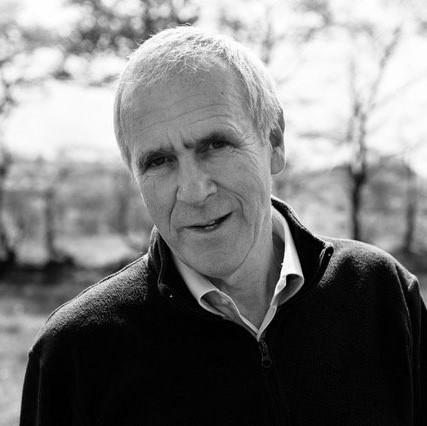
Patrick Holden, CBE
Founder & CEO
Patrick Holden is the founder and CEO of the Sustainable Food Trust, whose mission is to work internationally to accelerate the transition towards more sustainable food and farming systems.
Between 1995 and 2010, he was Director of the Soil Association, the UK organic advocacy and certification organisation, where he played a leading role in developing the organic standards and market.
He currently leads a task force on measuring land use sustainability for the Sustainable Markets Initiative (SMI), established by the then Prince of Wales in 2020.
Patrick trained in Biodynamic farming at Emerson College and has farmed for over 50 years on a 300-acre mixed organic dairy holding, now the longest established organic dairy farm in Wales, producing a raw milk cheddar from the milk of 85 Ayrshire cows.
He received a CBE for services to organic farming in 2005 and is Patron of the UK Bio-dynamic Agriculture Association. He became an Ashoka Fellow in 2016 and was awarded an honorary doctorate for his international work in sustainable agriculture by the University of Wales Trinity Saint David in 2022.

Adele Jones
Executive Director
Adele has been working with the SFT since 2013, now overseeing the organisation’s strategic activities. In recent years, one of her major focuses has been the development of a project called the Global Farm Metric – an internationally common framework for measuring on-farm sustainability. She is also currently an advisor to the Scottish Government.
In 2020, she undertook a part time secondment with the Welsh Government, and in 2019 she completed a part-time secondment with DEFRA, both times working to develop metrics for monitoring the new post-Brexit farm support schemes. Previous to these roles, she has a background in geography and soil science.
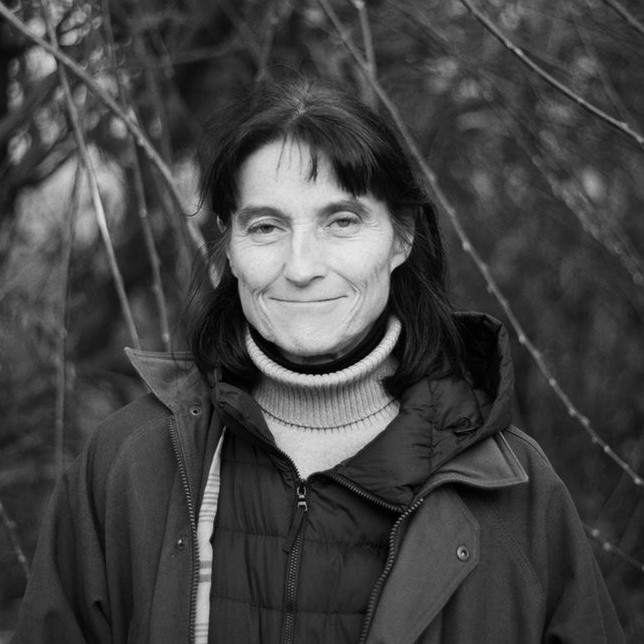
Fabia Bromovsky
Strategic Advisor and Global Farm Metric Director
Fabia joined the Sustainable Food Trust to work with the team to take the Global Farm Metric to the next stage of development, consensus and adoption, and to Chair the GFM coalition working group.
She first met Patrick Holden in 2015 when CEO of the Rothschild Foundation, director to the family office and board member of the Waddesdon Estate. She was looking for answers to how a responsible land owner could ensure that their land was passed to the next generation in a better state – environmentally, economically and for greater public good. This led to Sustainable Food Trust’s work into the establishment of a common language and framework for measuring the sustainability of our land management systems.
Fabia remains a board member and trustee for a number of family offices, Non-Executive Director of Whitley Asset Management, Trustee of the Illuminated River Foundation and Director of Waddesdon Wines Limited.

Bonnie Welch
Head of Projects
As Head of Projects, Bonnie oversees a wide range of SFT activities, including the Feeding Britain campaign, Beacon Farms project, and work around food education and local food.
She joined the SFT in 2017 to support the development and delivery of SFT projects and events. A large part of this work included managing the establishment and evolution of The Harmony Project – an SFT led initiative, working with educators to help them put Nature’s principles of Harmony at the heart of teaching and learning. Bonnie has a background in food anthropology and environmental science with a Bachelor’s degree in Liberal Arts and Sciences from the University of Amsterdam, and a Food Anthropology MA from SOAS University of London.
Bonnie is excited to be part of a growing movement of people who care about where their food comes from, and hopes the work of the SFT will help to inspire farmers, producers and citizens to move towards more sustainable food production and consumption.

Megan Perry
Head of Policy & Campaigns
Megan’s role involves working on SFT campaigns and shaping our work to influence policy. She also supports our communications team to ensure our policy and campaigns are reflected in our communications outputs.
Before joining the SFT, Megan studied for a degree in International Politics and then gained a Masters degree in Food and Water Security at Aberystwyth University. Following some work as a lambing assistant in Devon, she joined the SFT as an intern, moving to a full time role as a policy assistant before becoming communications manager. Megan now works on our policy, campaigns and comms, linking these important areas together.
She currently lives on her family’s Somerset farm where they rear sheep and spin and sell the wool.

Claire Peeters
Operations Director
Claire takes the lead on the operational management of the Sustainable Food Trust, as well as playing a key role in our strategic development and overseeing fundraising and financial activities.
Before joining the SFT, she spent eight years as Project Manager for Ecoworks, a community urban food and environmental organisation in Nottingham. There, she managed a number of projects including the box scheme and café alongside community horticulture and healthy eating projects.

Robert Barbour
Senior Research Manager
Robert works alongside others in the research team, helping to produce reports and briefing papers on a number of subjects, including the hidden cost of UK food and the role of grazing livestock in sustainable food systems. More recently, he carried out the research behind the Feeding Britain report, which explored the impacts on land use, food production and self sufficiency following a nationwide transition to regenerative, agroecological farming practices.
Robert comes from a hill farming family in Highland Perthshire, producing organic beef and sheep as well as trees. He has always been interested in the relationships between land use and the environment, and it’s an incredibly exciting (if challenging, and sometimes disheartening!) time to be working on these issues.
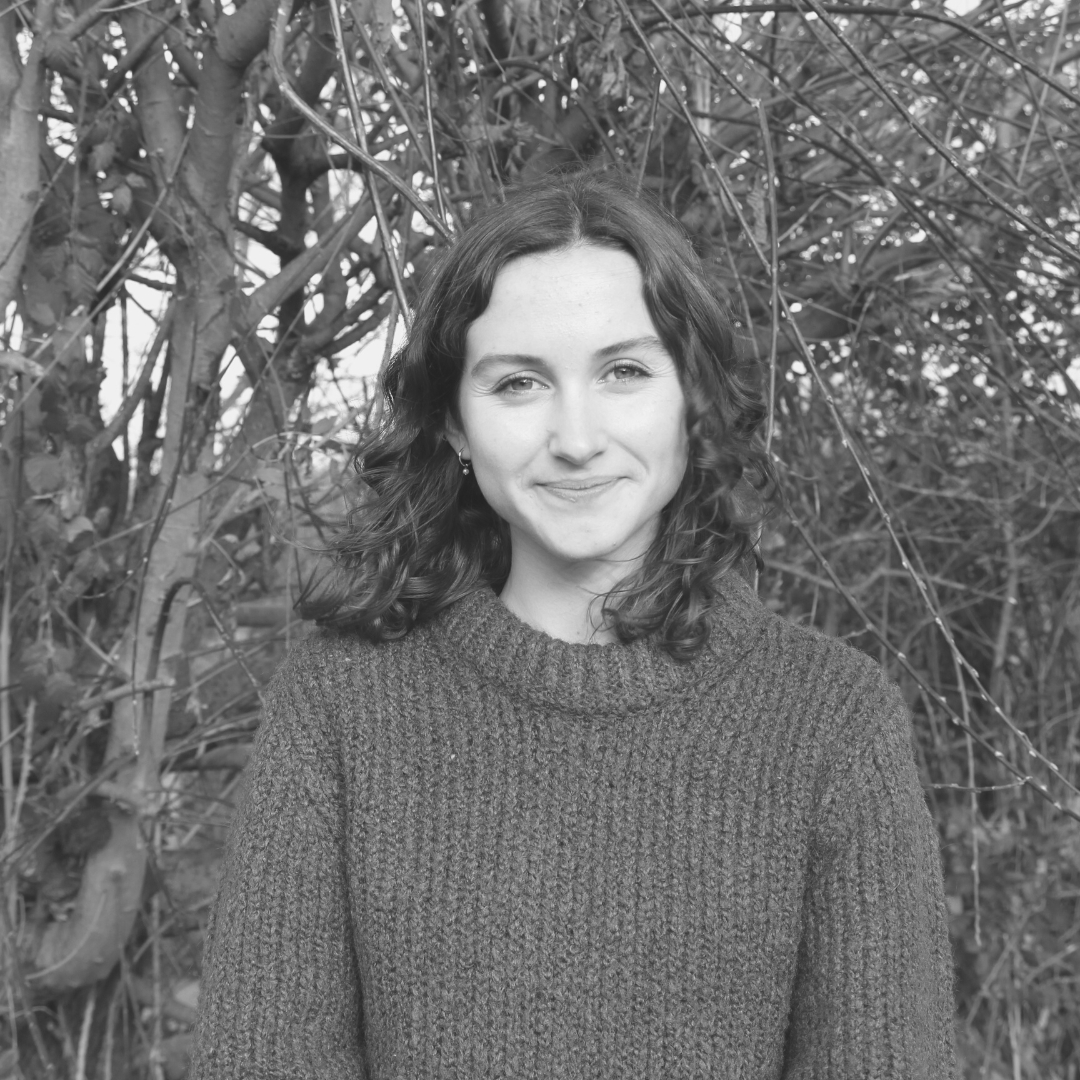
Imogen Crossland
Senior Research Officer
Imogen supports the research team in keeping up to date with the latest scientific evidence and report writing. She also assists with communications and policy work to ensure our messages are based on current research and policy events.
After completing her Biology degree at the University of Bristol, where she focussed on plant biology, molecular genetics, and the ecology of food production, she spent time volunteering with the Soil Association before joining the SFT as an intern. Imogen is currently studying for a master’s in Food Policy at City, University of London alongside her work.
Imogen is drawn to the link between people, food and nature. She believes that promoting equitable access to land, employment opportunities and food are the strongest ways to ensure that the food system can support the planet and everyone who lives on it.
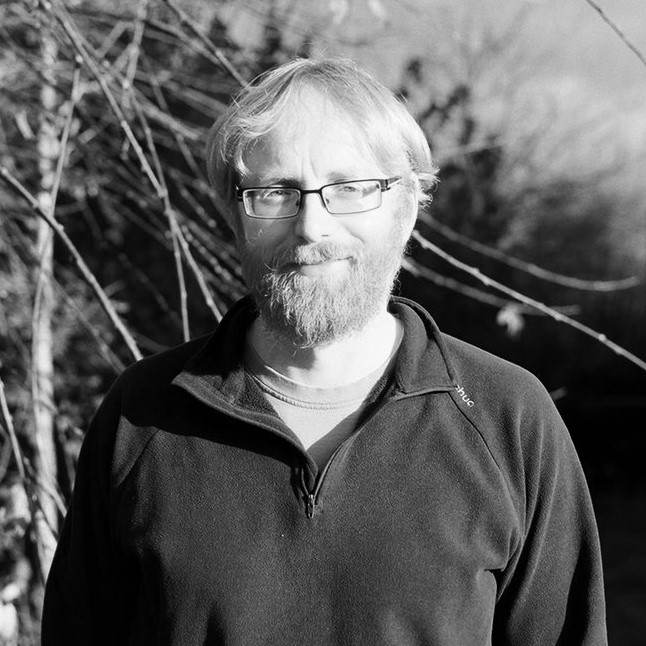
Richard Kipling
Senior Research Advisor
Richard joined the Sustainable Food trust in 2021 to oversee research activities, including within the Global Farm Metric and across a range of other projects and focus areas.
Since 2011, his research has included applying quantitative and qualitative methodologies to problems as diverse as guillemot breeding productivity, the pollination niches of buttercups and the research priorities for animal health modelling. His current focus is on implementing change towards more sustainable grassland-based livestock farming.
Prior to joining the SFT, Richard was a Lecturer in Sustainable Systems at Aberystwyth University. He has expertise in high nature value and climate friendly livestock farming. Before gaining his PhD in pollination ecology in 2011, he held positions as a countryside ranger at a number of nationally important UK nature reserves. Away from work, Richard is a keen walker, sea swimmer and writer.
Please note, Richard works for the SFT on a part-time basis.

Marina Suarez
Global Farm Metric Trials Manager
Marina leads the development, delivery and analysis of the Global Farm Metric’s national trials, assessing farm sustainability across economic, environmental, ethical and social measures, to support the transition to sustainable farming.
She started her career as a chef in Argentina. After working in different restaurants around the world she began questioning her relationship with food and its impact on the planet. Realising the potential of agriculture to address climate change and biodiversity loss, she felt a personal responsibility to help reconnect people with the land, shifting everyone’s relationship with food and fostering a deep understanding of its provenance, which is essential for our shared future.
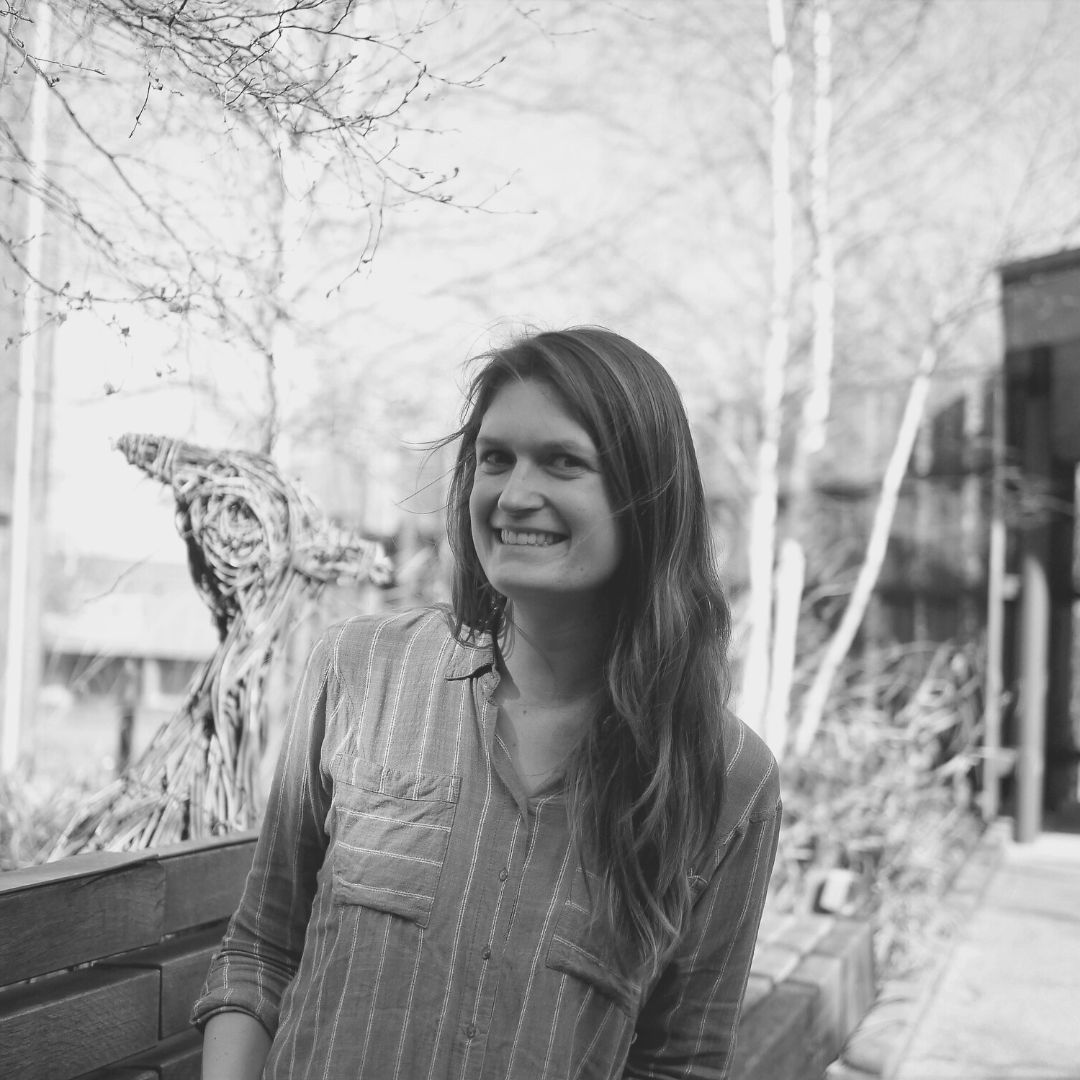
Anna Heinlein
Global Farm Metric Trials Manager
As Trials Officer, Anna works with Marina to support the development, analysis, and delivery of the national Global Farm Metric trials.
Food and food production has always played a central role in Anna’s life through countless hours spent picking cherries, apples and plums in her family’s orchards, but also through her specialisation in international value chain management. Anna has a BSc in Social Sciences and Economics, and a MSc in Natural Resource Management. She previously worked in the Woodland Trust’s Insight Team to support the leadership team with audience understanding, project evaluation and planning.
Anna then took a sabbatical and spent a year travelling Europe working in olive groves, on vineyards and herding sheep under cork oaks. Sampling great local food (Jamón Ibérico de Bellota, Slovenian natural wines, Portuguese bifana, Poiré Domfront, raw milk cheeses from Grazelema with carne de membrillo) was a highlight of the trip!
Anna returned to the UK and now lives in Pembrokeshire where, prior to starting her current role, she worked for a small community benefit organisation coordinating a citizen science project monitoring the health of the River Nevern catchment. She also led a county wide apple juicing project which turned more than 6 tons of apples into juice.

May Wheeler
Global Farm Metric Trials Manager
May works as part of the Global Farm Metric team, focusing on international trials, development and adoption. She enjoys travelling to, working on and learning from different farms around the world – from Georgian homesteads to Malaysian rainforests – and works to align environmental protection and social justice.
May is particularly interested in permaculture and biodynamic farming, as well as cooking, creating and swimming in the sea.
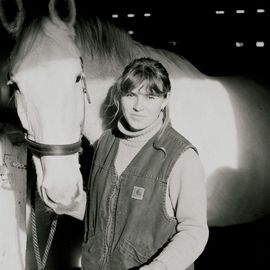
Olivia Boothman
Global Farm Metric Projects Officer
Olivia works in the Global Farm Metric team, her main focus being the international application of the GFM, through her work with Regen10.
Olivia started her career as a farm and equine vet in Cornwall, attending to the varied veterinary needs of large dairy herds, small-holdings of single pygmy goats, and everything in between! Rainy days TB testing provided the perfect conditions for chatting to farmers about the future of agriculture and piqued Olivia’s interest in regenerative and agro-ecological farming. Realising agriculture’s capacity as a solution to, not just cause of, climate change and biodiversity loss inspired her to supplement her practical knowledge of the food and farming industry with rigorous training across the pillars of sustainable development through a Masters in Development Practice from Trinity College Dublin.
Olivia is interested in the social dimensions of agriculture – the farming identity and the need for a just rural transition. Although not growing up on a farm, she has always been most at home surrounded by animals and nature (and preferably the sea) and hopes that the work of the Sustainable Food Trust will facilitate the reconnection to the land and deep understanding of the provenance of food that is necessary for our shared future.

Bahareh Sarvi
Global Farm Metric Trials Officer
As a Global Farm Metric Trials Officer, Bahareh works with the trials team to support the design, evaluation, and delivery of trials.
Bahareh has a background in public health, food policy, and sustainable agriculture. Holding a Food Policy MSc degree, she has developed a deep understanding of the interactions between food systems, public health, and the environment.
Throughout her academic and professional journey, Bahareh has honed numerical and analytical skills and gained a nuanced perspective on the impact of food production and consumption on society, the economy, and the environment.
Bahareh is passionate about supporting food policy advocacy and driving the transition to sustainable agriculture, and she is eager to bring her perspective and expertise to the Global Farm Metric (GFM) team at the Sustainable Food Trust.

Victoria Halliday
Communications Manager
As Communications Manager, Victoria works to spread the word about the SFT’s mission to enable a more sustainable food and farming system.
Overseeing our digital channels, Victoria develops the SFT’s communications strategy, helping to ensure that the importance of our research and projects is recognised and that our content is accessible and engaging.
Having grown up on an organic mixed farm in Cornwall, Victoria spent over 10 years working within publishing and sustainable finance in Oxford, Sheffield, and Bradford, and now lives on the northern edge of Dartmoor National Park. When not busy spreading the word about sustainable farming, Victoria enjoys walking, rock climbing, good food and live music.

Alice Frost
Communications Officer
As part of the Communications team, Alice helps to get the SFT’s messages across through our content, newsletters, and social media. She’s responsible for other essential daily communications and admin tasks.
Alice has a background in communications and marketing within the charity sector, including Bristol Zoological Society and the National Maritime Museum Cornwall. It was in Cornwall that Alice gained a First Class Bachelor’s degree in Journalism and Communications from Falmouth University. She takes pride in working for organisations that make a positive impact on the world.
Alice grew up in a small village in Cornwall, surrounded by miles of green fields and farm life. Though now living in Bristol, she still enjoys escaping the hustle and bustle of the city and returning to the peace of the countryside. She is excited to be a part of the SFT and to immerse herself in the world of agriculture and sustainable food.
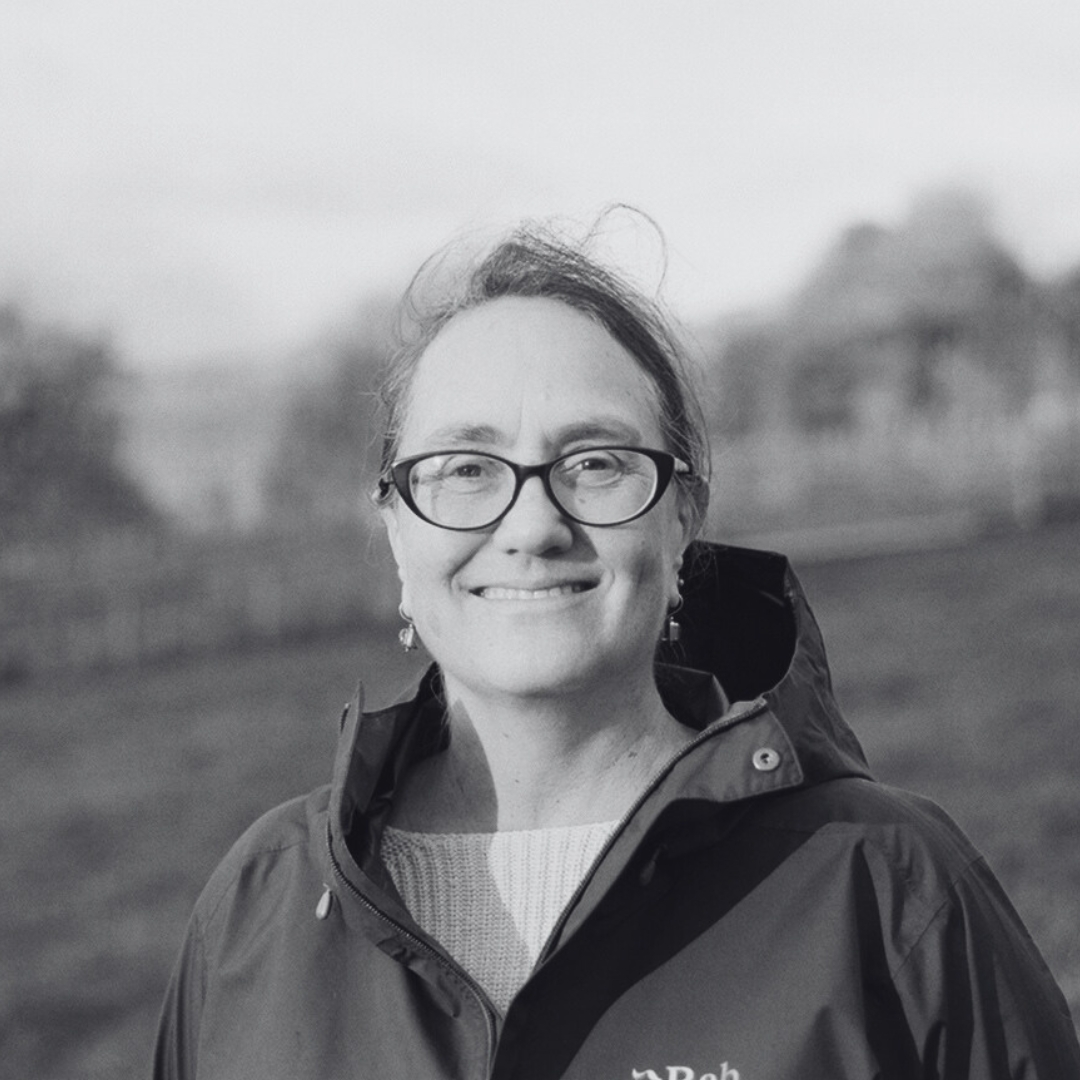
Alicia Miller
Content Editor
Alicia works as a freelance writer and website editor for the Sustainable Food Trust. She is able to use her understanding of sustainable food from the hands on perspective of growing food on a small organic horticulture farm in West Wales, Troed y Rhiw Organics, which she runs with her partner Nathan Richards.
Born in the United States, Alicia is a long way from home but loves her life in the wild west of Wales. She graduated with distinction from Stanford University and has an MA in the history of photography from the University of New Mexico. Before finding herself a small-scale farmer, Alicia worked for many years in the contemporary visual arts, working closely with artists as a curator, gallery educator and art critic.
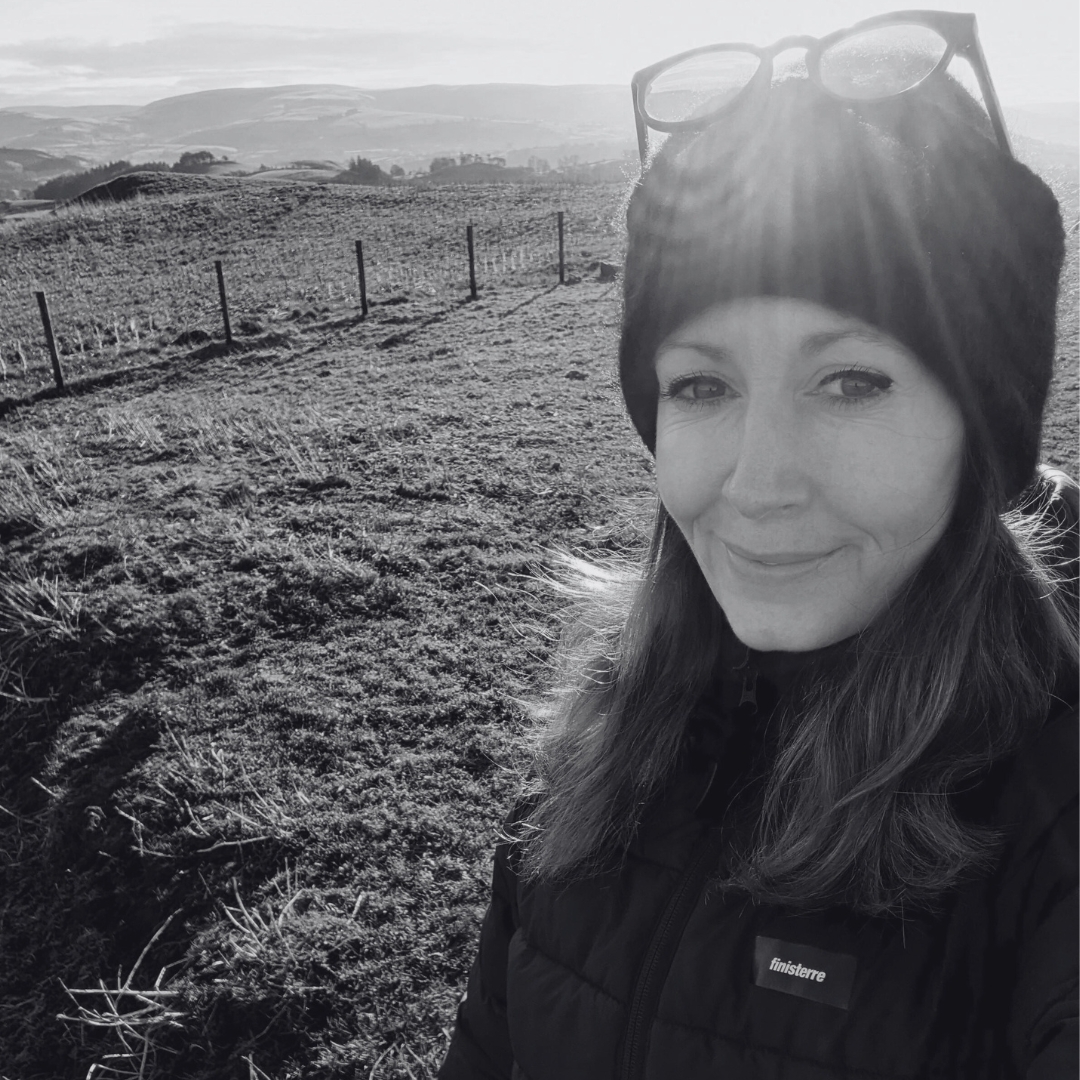
Rebecca Davies
Executive Assistant to Patrick Holden
Rebecca provides support to SFT’s Founder and CEO, Patrick.
She was brought up on a hill farm in rural Mid Wales which has been in her family for over 4 generations. She has a passion for nature, conservation and the great outdoors which has led to her spending time living and working in both New Zealand and Canada.
In her spare time Rebecca likes to spend as much time as possible outdoors, walking, studying nature and growing her own food in the garden.
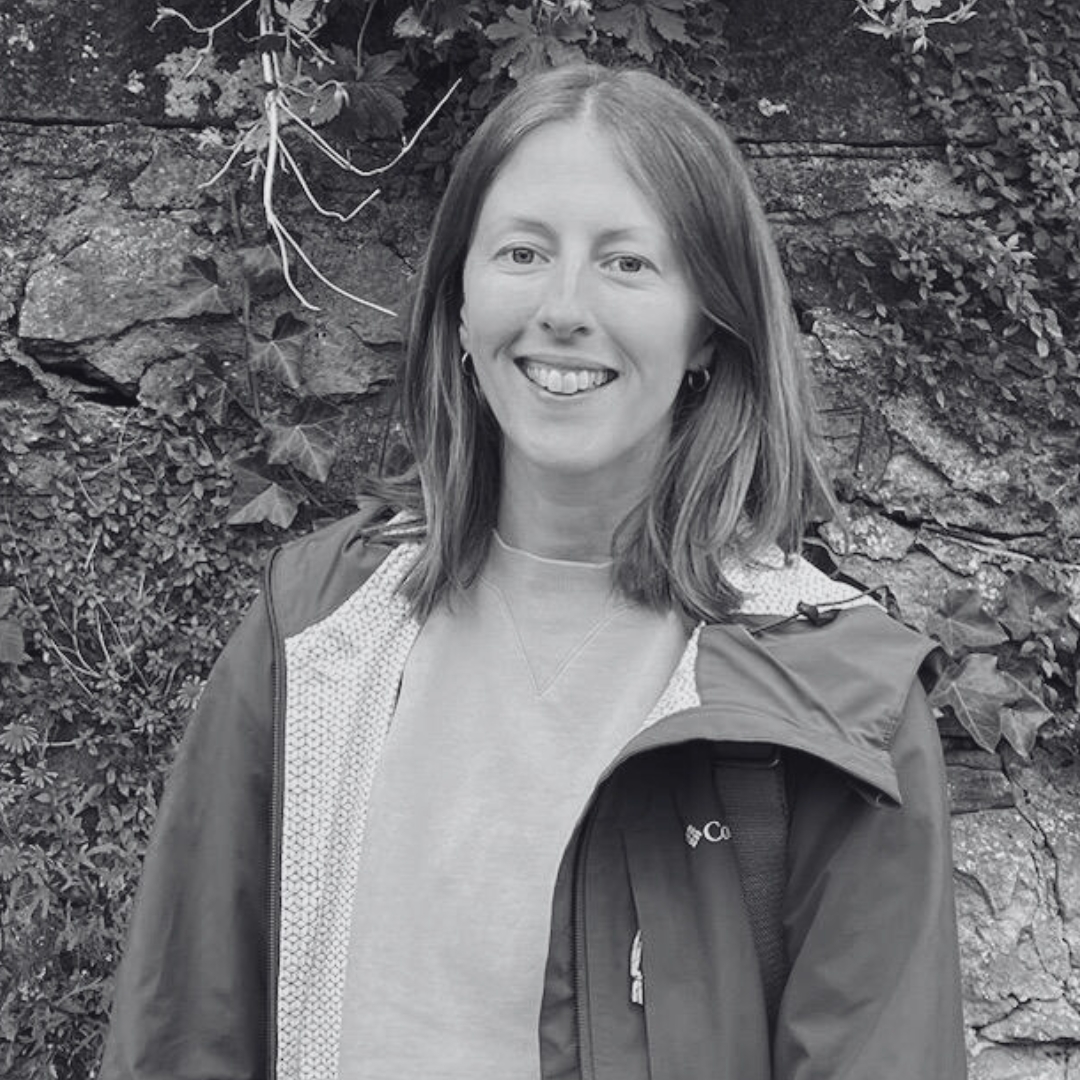
Isabel Eaton
Executive Assistant to Adele Jones
Isabel helps SFT’s Executive Director, Adele, to keep on top of her busy schedule and supports the rest of the team with event organisation, project logistics and comms work.
She studied Italian at university and has since taken on a variety of roles in the UK and Italy, including book editing, EFL teaching and organising tours of Florence.
In 2018, Isabel’s long-standing interest in food and farming led to her spending several months on organic farms and vineyards in France; learning about biodynamics and permaculture, helping to fill 20,000 wine bottles, repairing drystone walls, and enjoying the occasional glass of organic rosé! She continues to volunteer with various projects in the UK and is a keen, although not wildly successful, allotment grower.

